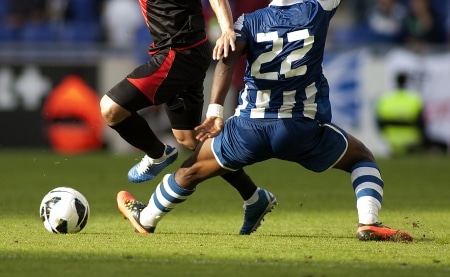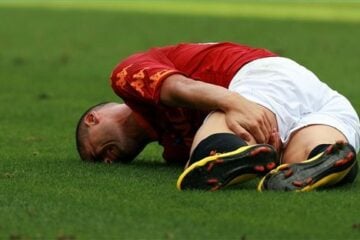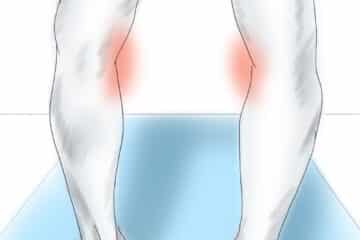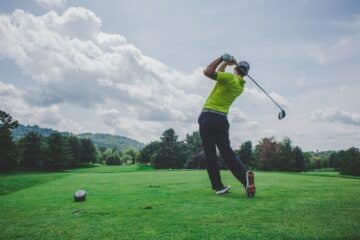
You just returned home from the emergency room. You or your child twisted their knee and felt a pop. Unable to walk, an emergency room visit seemed very appropriate. You were told this may be a ligament injury or a tear of the anterior cruciate ligament (ACL). Questions are swirling around your mind.
- Is this an emergency?
- do I require surgery?
- what surgery do I require?
- What should I anticipate for recovery?
- How will this impact my life going forward?
All of a sudden all of your non-physician friends are experts. Everyone is telling you what to do.
You likely head to your computer and Google “ACL tears”. After a short while you probably have more questions than when you started your online investigation. Searching for actionable, easy to understand and evidence influenced answers can be very had to come by through a google search.
Is the ACL torn?
If an athlete sustains a non-contact injury from cutting, turning or pivoting on the ballfield then the risk of injury to the ACL increases. If the player felt a pop, and now the knee is starting to swell and feels loose then the chance of this being an ACL tear goes up even further. A twisting or contact injury that leads to pain, the inability to walk, and significant swelling is usually due to one of three injuries:
- ACL tear
- Patella or kneecap dislocation: More on that in this post.
- MCL tear
Certainly there are other injury patterns which can occur, but these are the most common in the scenario I mentioned above.
ACL Injuries are increasing.
ACL tears are occurring more frequently. We are starting to see ACL injuries more often in adults simply because more adults are participating in sports later in life. We see ACL tears more frequently in children mostly because of issues surrounding single sports participation, the loss of sports seasonality and improper or lacking ACL prevention programs.
The evidence is in… if your little athlete is playing soccer year-round, and working with a coach on the side, and doesn’t take a season off to recover or play a different sport then the chance of tearing their ACL goes up, significantly. Just look at the NFL … preseason ACL injuries are becoming more and more common, despite the amazing training these athletes receive. Just like our muscles after a hard workout, our ligaments need time to recover as well.
What are the next steps after a serious knee injury
Most of you can wait to see an Orthopedic Surgeon until the next day. If not then head to an urgent care center for an X-ray and a set of crutches. Bracing isn’t necessary if you are using crutches, but it might make the knee feel better. Quadriceps atrophy and weakness occur quickly. So start moving the knee and activate those quads as soon as you are comfortable doing so. Physical therapy immediately after the injury is very important. Stiffness can be an issue after an ACL injury so do not keep a brace on too long before starting motion exercises.
QUESTION FOR YOUR ACL SURGEON: When should I start my physical therapy? If not immediately, have them explain why?
All ACL Tears Require Surgery, right?
NO. All ACL tears do not require surgery. Many people function very well without an ACL. When we see a new person with an ACL tear we take in a lot of information during our discussion with you to determine if you might benefit from surgery, or if you might do well without ACL surgery. Important variables include:
- Your age
- your activities
- your sport
- your goals and expectations
- whether or not your knee feels unstable.
- your exam
Non surgical management of ACL injuries
Anyone who watched the 2017 winter Olympics saw a female downhill skier who competed without an ACL. Clearly many of us will do just fine, as long as our knee feels stable and secure. In order to be managed without surgery you will need to complete an intense PT program to build your strength, stability and confidence. Roofers, tree surgeons, rock climbers etc probably should consider having surgery due to the risk of just one giving way or instability event. This post goes into detail about choosing whether or not to have ACL surgery.
When you manage an ACL tear without surgery most of you can anticipate that you will be able to return to being active. You will be able to run, cycle, swim, play doubles tennis, possibly ski, and play with your kids. As long as your knee stays stable and doesn’t feel loose then you can push the envelope, within reason .
If we choose to proceed with nonsurgical management do you have any limitations? Perhaps. You may not be able to return to intense skiing or sports such as soccer and basketball.
QUESTION FOR YOUR ACL SURGEON: What sports should I avoid if we manage my ACL without surgery?
Are there different surgeries for ACL tears?
Yes, there are different types of ACL surgery. Early studies on ACL repairs are promising, but the jury is still out. The gold standard today remains an ACL reconstruction. In order to build a new ACL we need to use a graft. We go through the graft choices available for ACL surgery here.
QUESTION FOR YOUR ACL SURGEON: Is my child’s ACL tear repairable?
Autografts are grafts from your own body, allografts are from a cadaver. In general autografts are stronger. Allografts should virtually never be used in a child. The failure rate is simply too high.
QUESTION FOR YOUR ACL SURGEON: What graft do you recommend for me and why? if they mention an allograft in a child, run away.
Over the years most ACL surgeons have converted to an “anatomic” type of ACL reconstruction. That simply has to do with where we put our tunnels for the new ACL graft. believe it or not, our old style did not put the new ACL where the old one was. the tunnels moved to accommodate a minimally invasive approach.
QUESTION FOR YOUR ACL SURGEON: What technique do you use for ACL surgery and why?
QUESTION FOR YOUR ACL SURGEON: Are you the right surgeon for me or my child? Volume matters. Low volume surgeons have a much higher complication rate. Surgeons should not dabble in ACL surgery.
Do you have questions regarding an Orthopedic injury or longevity?
Do you want to talk to an expert who can listen to you for 45-60 minutes and explain the options in detail?
Dr. Howard Luks offers remote guidance sessions to review your X-ray or MRI images and explain your options.
Dr. Luks has also received hundreds of requests for educational sessions on the topics discussed in his book, Longevity Simplified.
Need help on how to identify an ACL surgeon? See this previous post.
What is the recovery from ACL surgery?
Long! A lot longer than you think. For most atheltes it will take 8-9 months or more until you can begin training. It might take well more than a year until you can pass a return to sports test. This is a milestone based decision, not a time based decision. If we allow your athlete to return to sports too early then they have a VERY high risk of tearing their new ACL. Most kids, and parents for that matter think their child is ready to return far too soon. Give it time, they have invested a lot of blood, sweat and tears into their recovery. Don’t let that evaporate due to a poor return to sports decision.
QUESTION FOR YOUR ACL SURGEON: How soon until your athletes return to sports after surgery? If they say 6 months or less you are in the wrong office.
QUESTION FOR YOUR SURGEON: What are the return to sports criteria you use? There are well described return to sports criteria. If you pass all those tests then your risk of re-injury is reduced. If you do not pass those tests, then your risk of re-injuring your knee could be as high a 50/50. That should be unacceptable.
What are the risks of knee ligament surgery?
ACL surgery is not without risk. the risks are low but not zero. There is a risk that the surgery will not work as well as anticipated. There is a risk of infection. Some infections require that we remove the new ACL. There is a risk of blood clots. Many of us will use aspirin after surgery to minimize this risk. Many of us will soak your new ACL graft in a strong antibiotic solution before putting it into you. In young children there is a risk of growth plate injury. There is always a risk of developing arthritis, and surgery will NOT prevent arthritis from occurring.
QUESTION FOR YOUR ACL SURGEON: What are the risks of ACL surgery? Infection, stiffness, failure, persistent feelings of instability, the chance of re-injury, blood clots or DVT.
I hope this has provided you with some background information about ACL injuries and questions you should consider asking your ACL surgeon. These questions should be written out and discussed with the surgeon who will reconstruct your ACL or your child’s ACL. It is an important step. Be informed.












